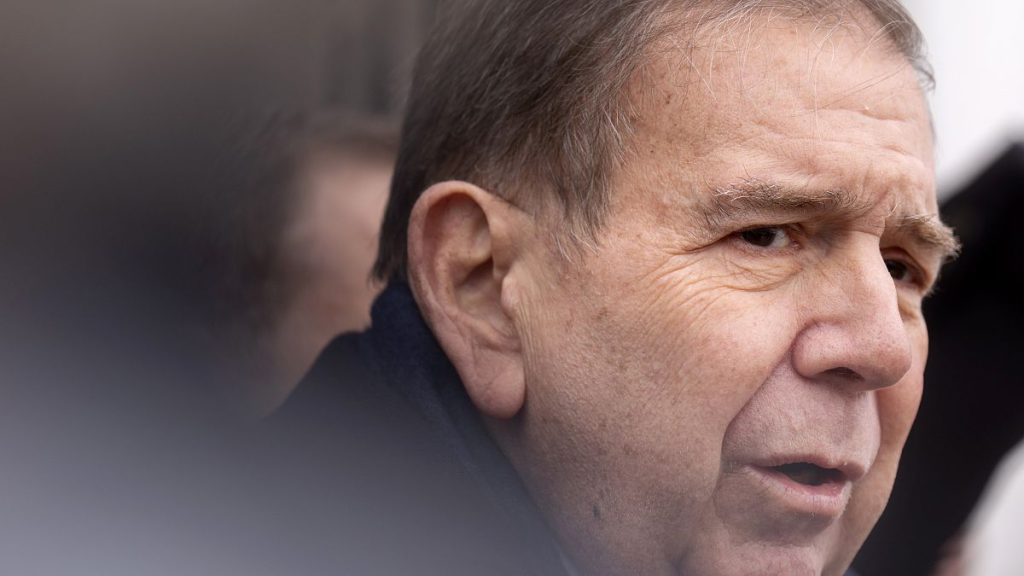The political landscape of Venezuela remains deeply contested, with self-exiled opposition leader Edmundo González actively challenging the legitimacy of President Nicolás Maduro’s claimed victory in the July presidential election. González has embarked on a diplomatic offensive, seeking regional support for his assertion that he is the rightful winner. His efforts have taken him to Argentina, Uruguay, Panama, and the Dominican Republic, where he has presented evidence purportedly demonstrating widespread electoral irregularities and substantiating his victory claim. Specifically, in Panama, González presented President José Raúl Mulino with photographic documentation of electoral materials, which the opposition alleges proves Maduro’s fraudulent claim to victory. This international campaign aims to pressure Maduro and garner recognition for González as the legitimate president of Venezuela.
Conversely, the Maduro government remains steadfast in its assertion of victory, dismissing González’s claims as baseless attempts to destabilize the country. Maduro has even offered a $100,000 reward for information leading to González’s capture, accusing him of conspiracy and racketeering. These charges, coupled with the Venezuelan government’s aggressive stance, led Spain to grant González asylum in December 2020, further exacerbating the diplomatic tensions between the two countries. The stark contrast in narratives – González’s claim of electoral victory versus Maduro’s insistence on his legitimacy – has created a volatile political climate with significant international ramifications.
The disputed election has fueled domestic unrest and international concern. Following the announcement of Maduro’s victory, widespread protests erupted across Venezuela, leading to violent clashes with police. The resulting turmoil resulted in a significant number of casualties and arrests, further deepening the political divide within the country. The Venezuelan government’s crackdown on dissent has drawn criticism from international human rights organizations, raising concerns about the suppression of democratic freedoms. The reported deaths of detainees in custody have further amplified these concerns, adding another layer of complexity to the already fraught situation.
The international community remains divided on the legitimacy of the election outcome. While a few countries, including Russia, a key ally of Venezuela, recognize Maduro as the legitimate president, a substantial portion of the international community has expressed reservations, echoing Gonzalez’s claims of electoral irregularities. This international skepticism, combined with the ongoing domestic unrest, presents a formidable challenge to Maduro’s authority and casts a long shadow over the country’s future. The Venezuelan government faces mounting pressure to address these concerns and demonstrate its commitment to democratic principles.
The underlying cause of this political crisis is deeply rooted in Venezuela’s economic woes. Under Maduro’s leadership, the oil-rich nation has experienced a dramatic economic decline, characterized by hyperinflation, widespread shortages of essential goods, and a collapsing healthcare system. This economic hardship has fueled widespread discontent and contributed to the mass exodus of Venezuelans seeking better opportunities elsewhere. The opposition blames Maduro’s socialist policies and alleged corruption for the country’s economic downfall, arguing that a change in leadership is necessary to reverse the downward spiral.
The ongoing political standoff in Venezuela presents a complex and challenging situation with significant implications for the country’s future. The competing claims of electoral victory, the domestic unrest, the international pressure, and the underlying economic crisis have created a volatile environment with no easy solutions. The international community continues to monitor the situation closely, urging both sides to engage in dialogue and seek a peaceful resolution that respects democratic principles and addresses the needs of the Venezuelan people. The path forward remains uncertain, but the pursuit of a stable and democratic Venezuela requires a concerted effort from all stakeholders, both within and outside the country.














